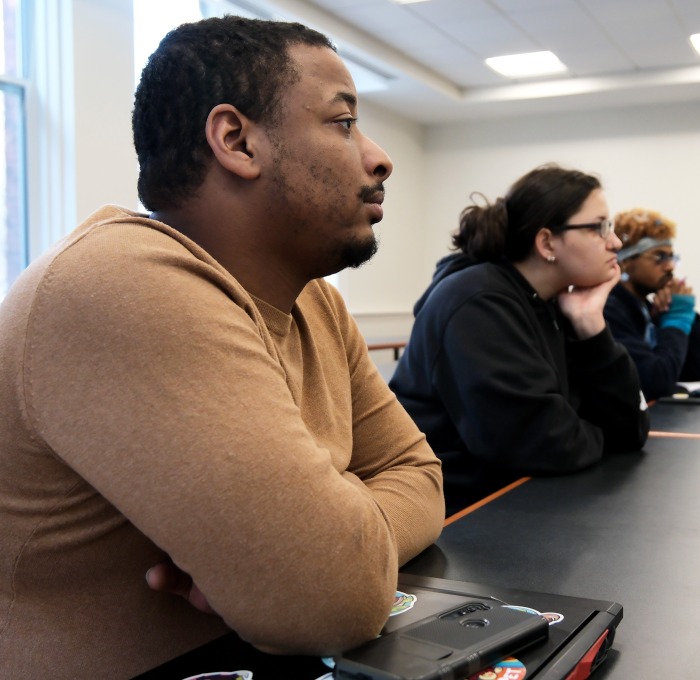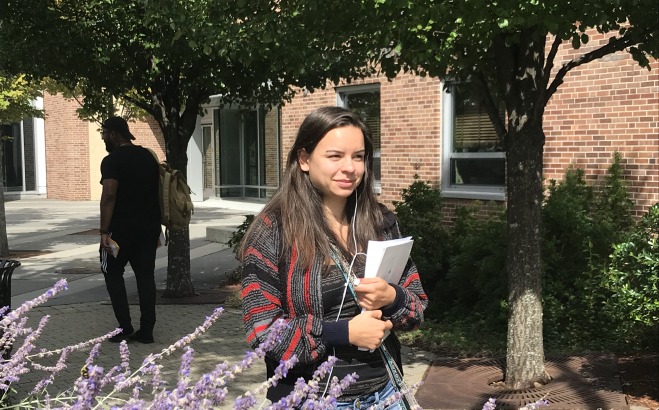
In Short
The human services bachelor's degree educates you in the skills and competencies necessary to enter and advance your career in a wide variety of social service arenas.
- Learn the skills to effectively help individuals and families with a variety of development challenges and mental health issues
- Understand the larger system in which human service agencies operate and learn to design interventions to increase their effectiveness
- Learn how to effectively work with individuals and groups by thinking critically and enhancing your interpersonal skills
New England's Longest-Standing 4-year fully accredited program through the Council for Standards in Human Services Education (since 1981).
The program integrates classroom instruction with a graded series of field-based experiences, including an intensive internship, to foster the application of knowledge and skills in community-based settings. It is founded on a strength-based empowerment perspective which emphasizes the enhancement of clients capabilities to meet the challenges they face. Graduates pursue careers in direct service to clients, public advocacy, and in the administration of human services in agency and government settings.
Student Story
Nadieska Diaz Araujo, a December 2023 graduate, found engagement was the key to success. She took advantage of caring counselors at school, and dedicated social workers at home.
What is human services?
Human services is a value-driven discipline of study and practice that allows for the art and science of building collaborative relationships with people. The discipline of human services does this by partnering with people with unmet needs to identify problems, generate solutions, and assess progress, for example in addressing housing insecurity, mental health needs, education opportunity gaps, navigating changing needs across the lifespan, etc. Human services enacts societal change through working with individuals, families, communities, and systems for the purpose of improving people’s lives.
Who are our students?
Our students want to help people survive and thrive. Our students want to talk about real things. Our students are passionate about change. Our students want to make the world a better place. Our students have lives outside of the university. Our students are driven by justice and caring. Our students are relationship-oriented. Our students know that human services need to improve.
Who are our faculty?
Our faculty want to help our students survive and thrive. Our faculty talk about real things, and are passionate about change. Our faculty are committed to making the world a better place. Our faculty have lives outside of the university, raising families, conducting research, and investing in their communities. Our faculty are driven by justice and caring, and are relationship-oriented. Our faculty know that human services need to improve. Our faculty are committed to helping students explore their values and commitments to create a lifelong professional path. Our faculty celebrate our students where they are and where they want to be.
Program Mission
The human services program supports students who are passionate about making a difference in the world around them. Through knowledge, skills, and experience, our faculty and students work together to develop strategies unique to them to enact social change. Our program integrates classroom learning with what happens in real life. We promote students’ ongoing reflection on their own strengths as emerging professionals, and on the strengths and diversity of individuals and communities.
Watch the video below to learn about William Coleman's experience as a human services major.
I’ve learned to have patience with not just others, but also with myself. Working in human service is definitely like riding a roller coaster, because it’s full of ups and downs. However, seeing the people I work with get through their struggles and make progress towards their goals, makes it all worth it.
Experiential Opportunities
Internships
Study Abroad
Curriculum and Other Information
- BS, Human Services - Program information from the University Catalog.
- Four-Year Plan of Study - Required and elective courses for program completion.
- Course Rotation Cycle (PDF)
We focus on building the core competencies for students to be able to:
- Evaluate and apply theories of social justice and social change
- Understand how policy is developed and how it impacts people, communities, and systems
- Critique how differential treatment has impacted service delivery for systematically oppressed individuals, families, and communities
- Assess the quality and accuracy of all forms of information
- Develop helping and management skills and apply them in both simulated and actual settings
- Design and implement appropriate interventions based on the knowledge of different populations and individual/family/community strengths
- Apply knowledge and skills from class material to field-based experiences
- Apply an ethical decision making model to promote empowerment and self-determination
- Engage in reflective process of one’s skills and future development
Many of our students go on to find employment in a variety of local, non-profit and state agencies and organizations. Others go on to graduate studies in social work and other related fields. Recent graduates are employed at:
- Massachusetts Department of Children and Families
- Luk
- Community HealthLink
- Public elementary, middle, and high schools
- Town of Chelmsford
- TaraVista Behavioral Health


